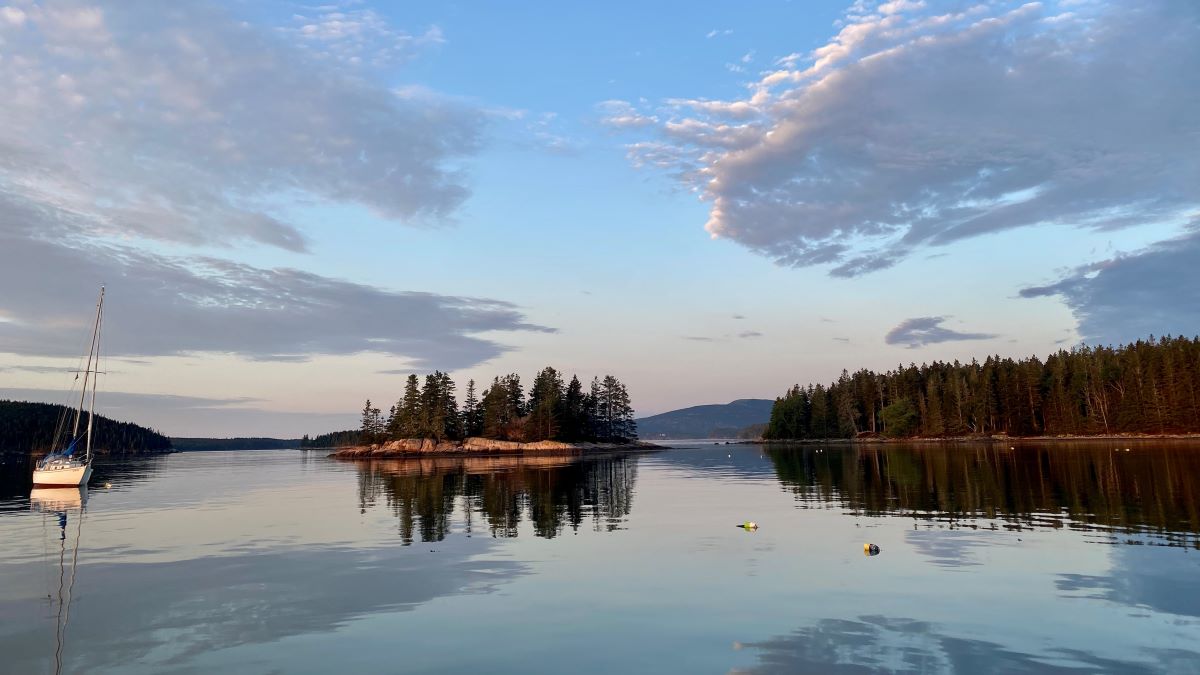Editor’s Note: The following story first appeared April 22 in The Maine Monitor’s free environmental newsletter, Climate Monitor, that is delivered to inboxes for every Friday morning. Sign up for the free newsletter to get important environmental news by registering at this link.
Happy Earth Day! Welcome to the very first edition of our new climate newsletter. We’re excited you’re here. Today I’m writing about PFAS and salmon farms, and I’ll include a round up of other stories, too.
A few years ago, when my partner and I had just moved into our house and didn’t know any better, we added municipal compost to our raised garden beds. It was a move to save money: we were mired in renovation costs from rebuilding the upstairs bedroom, and it just didn’t make sense to spend a whole lot of cash on dirt. Plus, we figured it had been tested and was safe: farmers used it, after all, and it was approved by the DEP for spreading.
We weren’t alone. Hundreds of farmers, municipalities and homeowners have spread compost derived from municipal sludge on their land over the past few decades (you can see where using the DEP’s sludge and septage mapper), decisions that have contributed to the “slow-motion disaster” of PFAS contamination all over the state.
Although researchers identified risks to humans from the chemicals as early as 1950, it is only in recent years that regulators have attempted to rein in the problem. Maine is at the forefront of this nationwide effort, and this week lawmakers sent a bill to Governor Janet Mills’ desk that would prohibit sludge from being spread on land in the state.
The chemicals, developed in the 1930s, are used in just about everything. They take years to break down (researchers estimate that it takes between four and 15 years for levels to be halved in the blood, assuming no additional exposure), and can persist in the environment for hundreds, perhaps thousands of years, earning them the nickname “forever chemicals.”
But the new rules are not going to solve the problem of PFAS-contaminated sludge, and will almost certainly increase the amount that’s disposed of in Maine landfills, several of which are already at risk of filling up. (There’s also growing concern around the greenhouse gases released when PFAS-laden products are combusted, but testing methods remain scarce.)
In testimony to the Committee on Environment and Natural Resources, Jeff McBurnie of Casella estimated that the ban would increase the amount of wet sludge needing to be landfilled between 80,000 and 100,000 tons, putting “immediate and significant pressure on the State’s existing — and increasingly limited — landfill capacity.”
Advocates for the bill argue that landfilling the sludge is still better than spreading it on Maine farms, at least 12 of which have been forced to stop selling their products due to serious PFAS contamination.
“My family’s land and well are irrevocably contaminated with forever chemicals. Our bodies are contaminated at industrial levels. And yet, our land was spread only four times. The last spreading occurred almost thirty years ago,” Adam Nordell, who owns Songbird Farm with his wife Johanna Davis, recently told the state’s organic farmers group.
There may be some relief on the way for farmers like Nordell and Davis, after lawmakers passed a $1.2 billion supplemental budget this week that includes $60 million toward an aid fund aimed at addressing PFAS contamination. The money could be used by farmers to replace lost income, support new infrastructure or remediation, cover health monitoring or buy or sell land.
State terminates controversial fish farm application
The Department of Marine Resources put the kibosh on an application from American Aquafarms to raise 66 million pounds of salmon in pens in Frenchman Bay, near Acadia National Park, citing issues with the company’s planned source for fish eggs and genetic requirements at the hatchery.
The proposal had come under fire from fishermen, boaters and Acadia National Park officials, who called the scale of the project “incongruous” with the surrounding area.
American Aquafarms can still reapply for a lease, but they would have to start from scratch, a process that could take 2 to 3 years, DMR spokesman Jeff Nichols told the Portland Press Herald.
Over in the midcoast, Whole Oceans began site preparation work on its Atlantic salmon farming operation at the former Verso paper mill in Bucksport. The project, a land-based recirculating aquaculture system (basically big tanks with water pumped in), is expected to eventually grow 44 million pounds of salmon annually.
Whole Oceans has been spared the controversy of some of the other aquaculture plans in the region. A court recently ruled in favor of a project in nearby Belfast, while another land-based operation in Jonesport faces mounting opposition.
To read the full edition of this newsletter, see Climate Monitor: A new environmental newsletter for Maine.
Kate Cough covers climate change and the environment for The Maine Monitor. Reach her by email with ideas for other stories at gro.r1752896968otino1752896968menia1752896968meht@1752896968etak1752896968.








